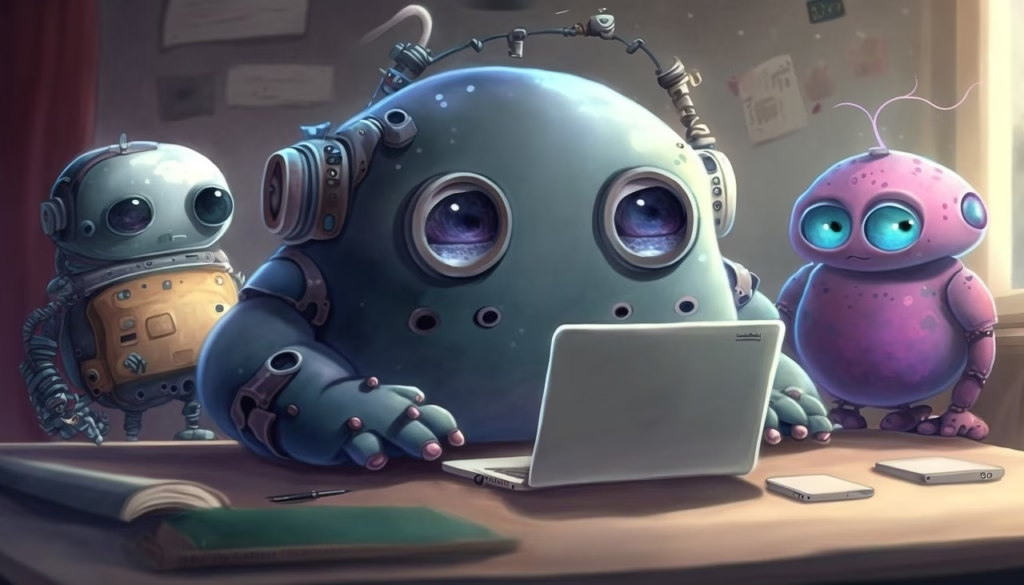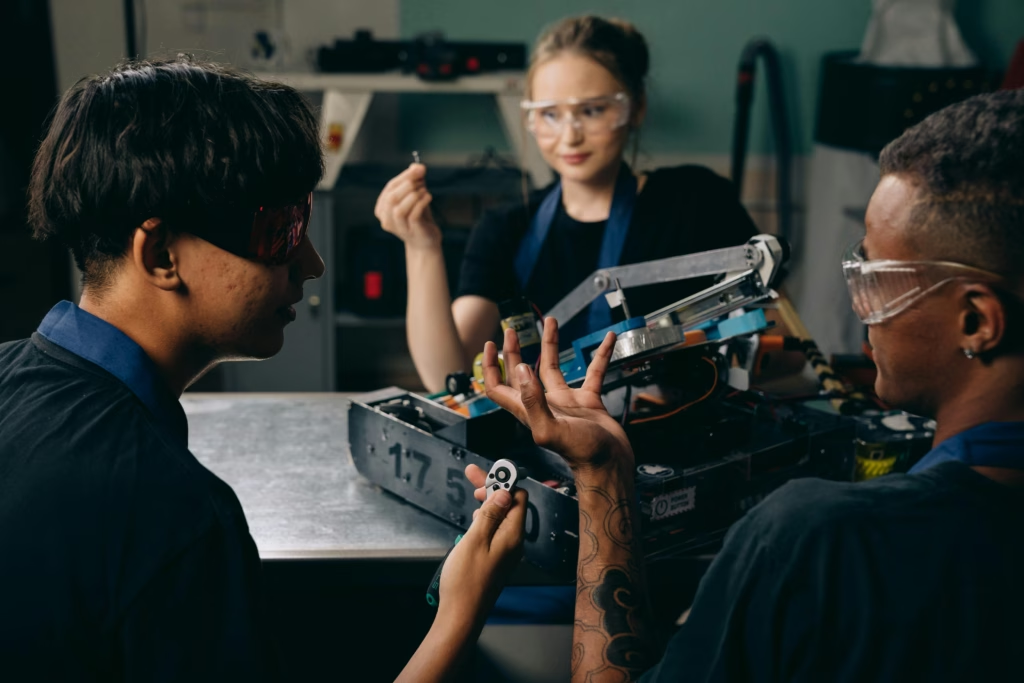The hum of progress is no longer just mechanical; it’s digital, powered by Artificial Intelligence. AI is rapidly transforming our world, and its impact on the future of work is profound, sparking both excitement and apprehension. Are we on the cusp of a productivity revolution, or facing widespread job displacement? Let’s delve into this complex and evolving landscape.
The AI Revolution: More Than Just Robots

AI isn’t just about humanoid robots taking over our jobs. It’s a broad field encompassing machine learning, natural language processing, computer vision, and more. It’s already woven into the fabric of our work lives, from automated email filters to sophisticated data analytics tools. Think about it:
- Automation of Repetitive Tasks: AI excels at handling routine, rules-based activities, freeing up human workers for more strategic and creative endeavors. Imagine accountants spending less time crunching numbers and more time advising clients, or customer service reps focusing on complex issues rather than FAQs.
- Enhanced Decision-Making: AI algorithms can analyze vast datasets to identify patterns and insights that humans might miss. This empowers businesses to make better decisions related to everything from product development to marketing campaigns.
- Personalized Experiences: AI powers personalized recommendations on e-commerce platforms, targeted advertising, and even customized learning experiences. This creates a more engaging and efficient experience for both consumers and employees.
The Shifting Job Market: Challenges and Opportunities

While the potential benefits of AI are immense, the transition won’t be without its challenges. Concerns about job displacement are valid. Some jobs will undoubtedly be automated out of existence. However, history tells us that technological advancements often create new jobs. The key is adaptation and reskilling.
- Job Displacement: Tasks that are highly predictable and routine are most susceptible to automation. This includes roles in manufacturing, data entry, and even some aspects of customer service.
- Job Creation: The rise of AI will create demand for professionals who can develop, implement, and manage AI systems. Think AI engineers, data scientists, machine learning specialists, and AI ethics officers.
- The Need for Reskilling: The future workforce will need to possess skills that complement AI, such as critical thinking, problem-solving, creativity, and emotional intelligence. Investing in education and training programs that focus on these skills is crucial.
Navigating the Future of Work: A Human-AI Partnership

The future of work isn’t about humans versus machines; it’s about humans and machines. The most successful organizations will be those that leverage the strengths of both.
- Human Strengths: Humans excel at creativity, complex problem-solving, critical thinking, empathy, and communication. These are the skills that will be increasingly valuable in the age of AI.
- AI Strengths: AI is unparalleled at processing data, identifying patterns, and automating repetitive tasks.
- Collaboration is Key: The ideal scenario is a collaborative partnership where humans and AI work together, each focusing on what they do best. This will lead to increased productivity, innovation, and efficiency.
Preparing for the AI-Powered Future

The future of work is uncertain, but one thing is clear: continuous learning and adaptation are essential.
- Embrace Lifelong Learning: The skills that are in demand today may not be relevant tomorrow. A commitment to lifelong learning and upskilling is crucial.
- Focus on Human Skills: Develop and refine the skills that are uniquely human, such as critical thinking, creativity, and emotional intelligence.
- Stay Informed: Keep up-to-date on the latest developments in AI and their potential impact on your industry.
Conclusion

The AI revolution is upon us. While it presents challenges, it also offers incredible opportunities. By embracing lifelong learning, focusing on human skills, and fostering a collaborative partnership between humans and AI, we can navigate this transformative period and create a future of work that is more productive, innovative, and fulfilling.




[…] engineering teams, ensuring high levels of service, quality, security, and performance, and driving innovation to handle growing data volumes. The ideal candidate will possess a strong understanding of system […]
[…] Efficiency: Automate repetitive tasks, centralize information, and optimize workflows to maximize […]
[…] be working with cutting-edge technologies like VMware ESXi, HPE server hardware, and various automation tools. The role also involves cloud server initiatives, security hardening, and end-user […]